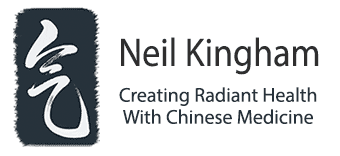Cooking With Lily Bulb (Bai He)
 Using lily bulb (Bai He) in cooking is a new find for me – and I have to say, I’m slightly hooked!
Using lily bulb (Bai He) in cooking is a new find for me – and I have to say, I’m slightly hooked!
Lily bulb is one of those wonderful ‘herbs’ in the Chinese materia medica which is also an everyday food item in China. It is used both for its flavour, and also its medicinal qualities.
Energetically, Lily Bulb is Cooling and Sweet (also slightly Bitter) and it enters the Heart and Lung. This makes it a soothing, calming Yin tonic, of great use in cases of irritability and low-grade anxiety. In fact, there is a condition known to Chinese Medicine as ‘lily bulb disorder’, which is characterized by mental disorientation, irritability, insomnia, palpitations, a bitter taste in the mouth and dark, scanty urine. As the name suggests, lily bulbs are important in the treatment of this condition, and the description of the disorder tells us exactly what kinds of symptoms these tasty little bulbs can be used for.
Because of its effect on the Lung, Lily Bulb can also be used to help a dry cough or sore throat, especially for chronic cough manifesting with low-grade fever or feelings of heat.
In cooking, I think of lily bulb as an alternative to chestnuts. It has a similar texture and taste, and is very good in stews and casseroles. It can be added dried, and needs to be cooked for a while – an hour or longer – until soft.
Please note that Bai He is a specific variety of lily, and not all lily bulbs can be eaten, some are poisonous. You can get Bai He from Chinese supermarkets, or ask your Chinese herbalist or Chinese nutritional therapist for some.
As a food, Lily bulb is safe for regular consumption, but as with any food or herb, should not be taken in large amounts. Around 10g per person in a dish is about right as a guideline.
You can read my recipe for Chicken with Carrots and Lily Bulbs here


Hi, I’m wondering if cooking Bai He used as food has the same medicinal properties when used as decoction? Since decoction requireds 20-30 min, and stir-fry is usually quicker. Is there any difference between the medicinal value? Or it is not that important for this herb how long it is cooked? When used it stir fry, can it still help anxiety or insomnia?
How did you find that Bai he affects you when eating it? 🙂
I’m still leaning about different Chinese herbs, and some that is also used as food.
Thanks for any info!
Hi Thomas. Good question! A lot of Chinese herbs are also used as food. It’s a little bit different because when making a herbal decoction you boil for a while and then discard the herb. In food, you obviously eat the herb. But broadly, we can say that when eaten the herbs have more nourishment, and the energetic effect stays the same – whatever it does as a tea is what it does as a food.